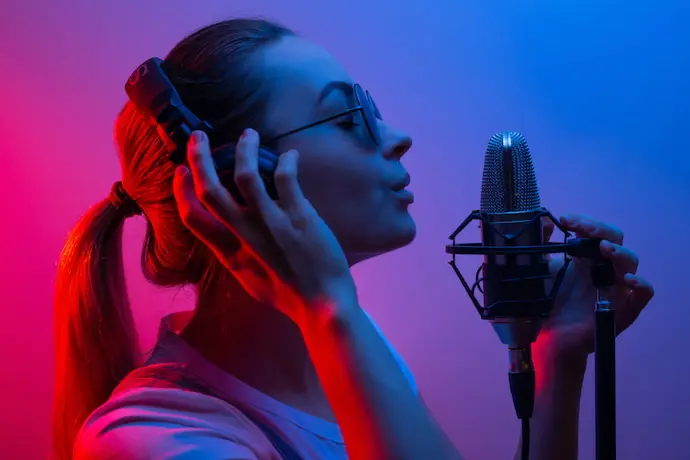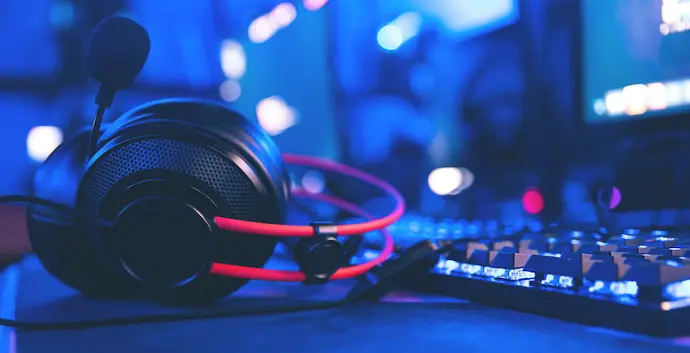Twitch is a platform based in sharing visual and auditory content with people from around the world.
However, what happens when you don't have the right to share this content with others?
If you're streaming any form of media that is not your own, you may be unknowingly infringing on someone's copyright.
Whether that's playing a popular band's music in the background or watching Youtube videos about the game you're playing, it's important that you ensure your stream stays above-board when it comes to using copyrighted material on Twitch.
In this article, we'll briefly cover three best practices you should follow when streaming material owned by other people.
Note, however, that this is far from an exhaustive list, and Twitch is constantly updating their rules and policies regarding this issue.
For this reason, it's often wise to stray on the safe side of things whenever you're picking out content for your viewers.
After all, dealing with a copyright strike or DMCA takedown after the fact is much more difficult than being proactive in your streaming practices.
1. Know Which Materials are Subject to Copyright
Generally speaking, you should assume that any content you didn't make yourself is subject to copyright law. For this reason, you should take special care in using other people's creations in your stream.
Copyright is a form of federal intellectual property law that applies across the country.
This means that anyone streaming in the United States is subject to the rules and guidelines outlined in these laws.
Copyrights protect original works of authorship spanning across all forms of media.
In the case of Twitch, the most common copyright formats you should be aware of are songs and other audio clips, clips from TV shows or movies, Youtube videos and other similar video content, and even, in some circumstances, the video games themselves.
Put simply, you cannot and should not use other people's work in your stream unless (1) you have a valid permission ("license") to use this content on your stream, or (2) your use falls under the doctrine of "fair use."
Illegally using copyrighted material on your stream will put you at risk of a DMCA takedown or other legal remedy, and could even result in the termination of your Twitch account.
When am I violating copyright law?
As noted quite specifically by Twitch:
You should only share content on your Twitch channel that you own, or that you otherwise have rights to or are authorized to share on Twitch.
(...)
Examples of content you should not share on Twitch without permission from the copyright owners or unless otherwise permitted by law include: (1) other Twitch creators' content, (2) pirated games or content from unauthorized private servers, (3) content from other sites, (4) movies, television shows, or sports matches, and (5) music you do not own or do not have the rights to share.
Twitch Community Guidelines
As you can see in this excerpt, any use of content that you did not create yourself (and that you did not receive prior permission to use) can count as a copyright violation.
Is where a way to ensure I'm not violating copyright law?
There are only two ways to use copyrighted material on Twitch without being in violation of copyright law:
- Receive prior permission from the copyright owner (such as by purchasing a license or using license-free or public domain music).
- Use the material in a way that falls under the doctrine of fair use.
Outside of these two scenarios, there's no real way to ensure you aren't in violation of U.S. copyright law.
As one final note, remember that there's a difference between federal copyright law and Twitch's own terms of use.
It's possible to violate Twitch's terms of use while still remaining in the boundaries of copyright law, so you should always review the platform's policies before using any copyrighted material in your stream.
2. Know How to Correctly Identify and Use Different Types of Copyrighted Material
The rules and guidelines surrounding copyright protections can vary based on the type of content in question.
For example, the rules surrounding music are noticeably different from the rules surrounding videos or print materials.
For this reason, it's important to learn the nuances between the different types of copyrighted material you're using.
How to Use Copyrighted Music on Twitch
Twitch's policy regarding the use of copyrighted music is pretty restrictive.
Further, Twitch's ongoing battle with streamers who use copyrighted music has resulted in a lot of uncertainty on the issue, especially in regards to using music that you own the copyright to or that is licensed to you.
Generally speaking, the only real way to be certain on this issue is to consult with an attorney who's up-to-date on the matter.
Outside of speaking with an attorney, there are a few best practices that are worth following to ensure you're staying on the right side of the law:
- You are generally allowed to use copyrighted music that has been licensed to you in a way that allows it to be played on Twitch.
- If you have the appropriate rights and are not singing over recorded music from the original songs, then you may be able to perform cover songs (this means that singing over the original audio "karaoke-style" still counts as copyright infringement).
- Twitch claims to have its own royalty-free music library for streamers to use with over 1,000 pre-cleared songs from record labels they have partnered with.
- Use vetted services who provide "stream-safe" or "Twitch-Licensed" music, but do not be afraid to ask how the music is licensed and do your own homework.
Finally, note that these rules apply even if you aren't the one playing the music.
For example, it's generally your responsibility to ensure that copyrighted music played through another source (such as a video game) follows Twitch's music guidelines as well.
A common example of this situation appears in popular rhythm and music games such as Beat Saber, Guitar Hero, or Rockband, which rely on 3rd-party music as a core aspect of the gameplay.
At the end of the day, you should consider your sources and who to trust. Twitch will always act in its own best interests, and they will only do what is necessary to protect them from liability.
If you end up on the bad side of an infringement suit, Twitch will generally suggest it is your responsibility to ensure the content is properly licensed, etc.
Overly relying on their policies may not be in your best interests.
How to Use Copyrighted Videos on Twitch
Generally speaking, the rules for using copyrighted videos on Twitch are the same as for using copyrighted music.
Additionally, however, you should be careful about playing the visual part of copyrighted videos on your stream, even if these videos are missing their audio portions.
For example, streaming the video portion of a soccer game will likely violate Twitch's community guidelines and terms of service, as seen in the quoted section above.
The same is true for streaming any video content that you do not personally own or have a license for.
How to Use Copyrighted Video Games on Twitch
As one final note on this subject, you should be aware that videos games also count as copyrighted material in the contexts of your Twitch stream.
While this definition only applies in certain situations, it's still wise to pause for a moment and think about how your use of a video game may be violating Twitch's community guidelines or copyright law as a whole.
For example, some uses of a video game may fall under the rules outlined in the law on the "Circumvention of Copyright Protection Systems" or other similar statutes.
As a few common examples:
- Streaming a cracked or pirated version of a video game for which you do not have a valid license.
- Streaming a video game in a manner that violates the game's copyright protections and terms of service, such as using a 3rd party DPS overlay in an MMO.
- Using mods or otherwise modifying the game in a similar manner which circumvents the original author's copyright.
Put simply, you should be careful when streaming in a way that goes beyond the original authorial expression of the creators.
Not only does such gameplay violate Twitch's terms of service and community guidelines, but it will mostly likely also violate the terms of use for the specific game itself (possibly leading to repercussions from the developer or publisher).
You can review the terms for a game in its respective EULA (end user license agreement), and most newer game publishers have specific provisions regarding streaming.
3. Know When Your Creative Expression Falls Under "Fair Use"
Fair use is a common legal defense to claims of copyright infringement.
Under the doctrine of fair use, content creators can copy parts of another person’s intellectual property as long as they meet certain criteria.
In their community guidelines, Twitch suggests that you evaluate your use of copyrighted materials with the fair use rule guidelines to avoid having your videos taken down.
If you are using copyrighted material in one of the ways that fall under fair use, you can avoid the long, daunting, and sometimes expensive process of getting permission from the copyright holder.
Generally note that while some instances appear to be a "fair use," this legal defense can only be officially determined in court by a judge.
What is "fair use"?
The fair use doctrine applies to any use or copying of a copyrighted material that is done for a limited purpose or in a transformative manner.
While there are no bright-line rules to fair use, most fair use cases fall into one of two categories:
- Commentary and Criticism
- Parody
Importantly, all of the rules and guidelines surrounding fair use are encoded as case law, so courts and parties settle fair use cases on a case-by-case basis.
While most cases will fall under one of the two main categories, it’s still important for content creators to speak with a lawyer if they feel that their use of another person’s intellectual property approaches the boundaries of fair use.
What Twitch (and Courts) Look For When Evaluating Fair Use
Unfortunately, the only way to firmly establish whether a particular use of copyrightable material counts as fair use is to take it to federal court.
Importantly in this context, there are four well-established factors to determine the eligibility of a fair use claim:
- The purpose and character of the use, including whether such use is commercial in nature or for nonprofit educational purposes.
- The nature of the copyrighted work (for example, research papers generally have fewer protections than songs or creative videos).
- The amount and substantiality of the portion used in relation to the copyrighted work as a whole.
- The effect of the use on the potential market for or value of the copyrighted work.
When considering whether your use of another person’s work counts as fair use, it’s often wise to consider all four of these elements in detail.
The weight of each factor is determined individually in each case.
Fair Use: A Quick Example
As an example, let's imagine a stream where an individual is listening to a newly released song and providing commentary on it.
Consider the following two scenarios:
- Scenario 1: The streamer plays the song in full once, states "that's a good song" or bobs their head along to the rhythm, and then moves along to a different song.
- Scenario 2: The streamer, known for breaking songs down using music theory, listens to the song in full once, and then spends the next hour playing small segments of the song while educating their audience about the various musical elements that go into each section.
When applying the four factors listed above to each of these cases, it's easy to see how the second streamer would most likely have a stronger claim to fair use when compared to the first streamer:
- Purpose: While the first streamer simply plays the song for entertainment, the second is playing it to preface a discussion on music theory, i.e. education.
- Nature: As a song, it's expected to include greater creative elements and not to include, by its nature, things that aren't protected by copyright law like facts and generic themes or ideas as the primary feature. As such, the song is seen as more protectable than say a phonebook which just includes names, addresses, and less creative elements.
- Amount and Substance: Looking solely at ratios, 100% of the first streamer's content consists of the song itself. Meanwhile, the full song takes up maybe 5-8% of the second streamer's content. NOTE: There is no magic number for fair use purposes, but it's best to minimize your use.
- Effect on the Market: Finally, the first streamer is likely playing songs simply to play songs, while the second streamer is playing the song as a means of educating their audience. Since songs are meant to be listened to (as opposed to being used as an educational tool), the first streamer is likely harming the original creator because they miss out on potential revenue through his unlawful streaming. In comparison, the second streamer would likely have a lower impact on the original creator's market, since the point of the content is to critique and educate and not to simply play the song for entertainment.
For more information and examples, please see Twitch's music guidelines.
Conclusion
When it comes to using copyrighted material on Twitch, it pays off to do your homework. Most importantly, it's smart to follow a few best practices in regards to streaming with copyrighted material:
- Know which materials are subject to copyright laws, as well as the nuances between them.
- Learn Twitch's stances on these different materials, especially in regards to music and video.
- Determine whether your stream falls under the doctrine of fair use, and take precautions to ensure your content stays above-board.
Finally, please remember that even the best intentions can still lead to a DMCA claim and possibly a copyright strike against your channel.
With the ever-growing prominence of Twitch as a streaming platform, it's important to keep up-to-date with all of the changes surrounding copyright law and your stream.



